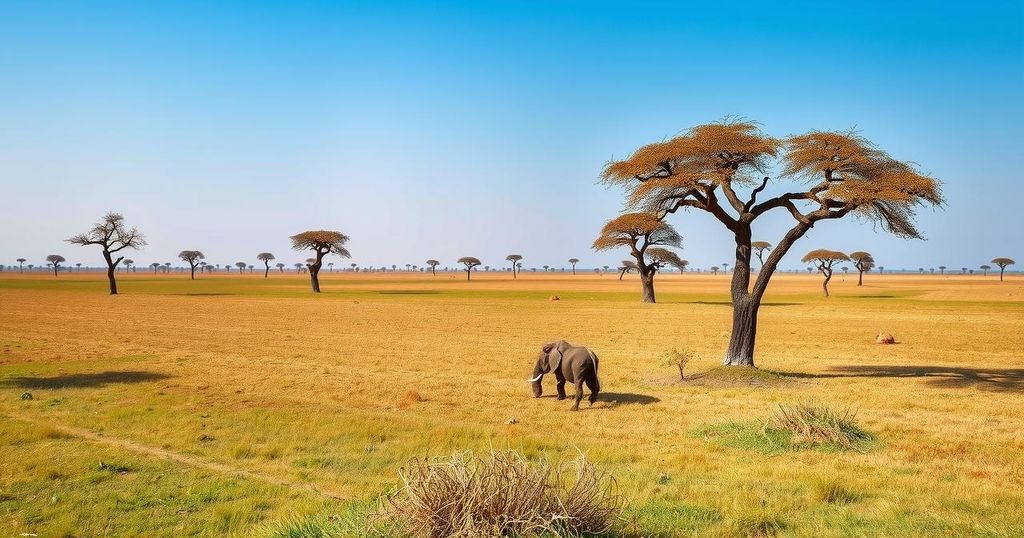The Role of Opposition Groups in South Sudan: Challenges and Opportunities
The article discusses the ineffectiveness of South Sudanese opposition groups, which are fragmented and lack a unifying vision to challenge the autocratic regime. The historical reliance on personal ambitions rather than a national agenda undermines their credibility. For meaningful change, the opposition must consolidate their efforts and engage with grassroots movements, supported by international investment in political development and civic movements.
The autocratic regime in South Sudan faces challenges from fragmented opposition groups that often lack a cohesive political vision. These groups, influenced by personal ambitions and a lack of strong institutional support, have failed to mobilize citizens effectively against the government. The absence of a functional state and limited political literacy also hinder the potential for a popular uprising, keeping the current regime entrenched.
Historically, the effectiveness of political change in autocratic systems relies on a credible, united opposition. Unfortunately, the South Sudanese opposition has not fulfilled this role, remaining disjointed and often co-opted by the ruling elite. This fragmentation diminishes their credibility and leaves the regime unchallenged, perpetuating a cycle of ineffective governance and missed opportunities for reform.
Rulers in South Sudan utilize various tactics—such as coercion and division—to maintain power, while many opposition parties appear to exist primarily for political bargaining rather than fostering nation-building. This preoccupation with local grievances, rather than a structured national agenda, mirrors the issues of the regime, compromising their potential for genuine change.
Existing rivalries and power struggles from the liberation era continue to undermine opposition unity and credibility. Many groups appear inactive, lacking meaningful grassroots engagement and failing to connect with the citizenry. Their reliance on militarized strategies diminishes trust and deepens instability, illustrating the divide between opposition leadership and public needs.
Despite these challenges, there is potential for opposition groups in South Sudan to consolidate their efforts into a formidable front. By promoting a unifying, patriotic vision focused on national progress rather than personal gain, they can inspire citizens and move towards stability and prosperity for all communities.
Successful political transformation necessitates a nationalistic and visionary leadership that transcends past grievances. This leadership must engage with grassroots movements and prioritize collective goals, thereby fostering an inclusive dialogue that enhances national cohesion and captures international support.
A united opposition can inspire hope for a more stable South Sudan, yet historical patterns suggest that divided factions risk continued authoritarian rule. The lasting lesson drawn from other nations indicates that when opposition groups consolidate their power into effective political entities, they can drive significant change.
International investment is essential for nurturing political parties and civic movements, as evidenced in countries like Mozambique and El Salvador, where former armed groups transitioned into legitimate political forces. South Sudan, with its history of suppressed political development, must now prioritize the establishment of cohesive, issue-based political competition to ensure a democratic future.
Supporting established civic movements and political parties is vital for fostering change in South Sudan. By redirecting international assistance towards these entities, the country can break free from military dominance and pave the way for democratic governance—an essential step for peace and stability in the region.
In conclusion, the opposition groups in South Sudan currently embody a significant challenge rather than a solution to the challenges facing the nation. Their fragmentation, lack of a coherent vision, and self-serving agendas hinder their ability to mobilize effective change against the autocratic regime. For progress to occur, these groups must unite under a grand national vision, distancing themselves from past grievances and individual ambitions. Strong international support in fostering political development is crucial to establish a pluralistic political landscape that embodies democratic principles and represents the diverse interests of the South Sudanese population.
Original Source: www.radiotamazuj.org




Post Comment